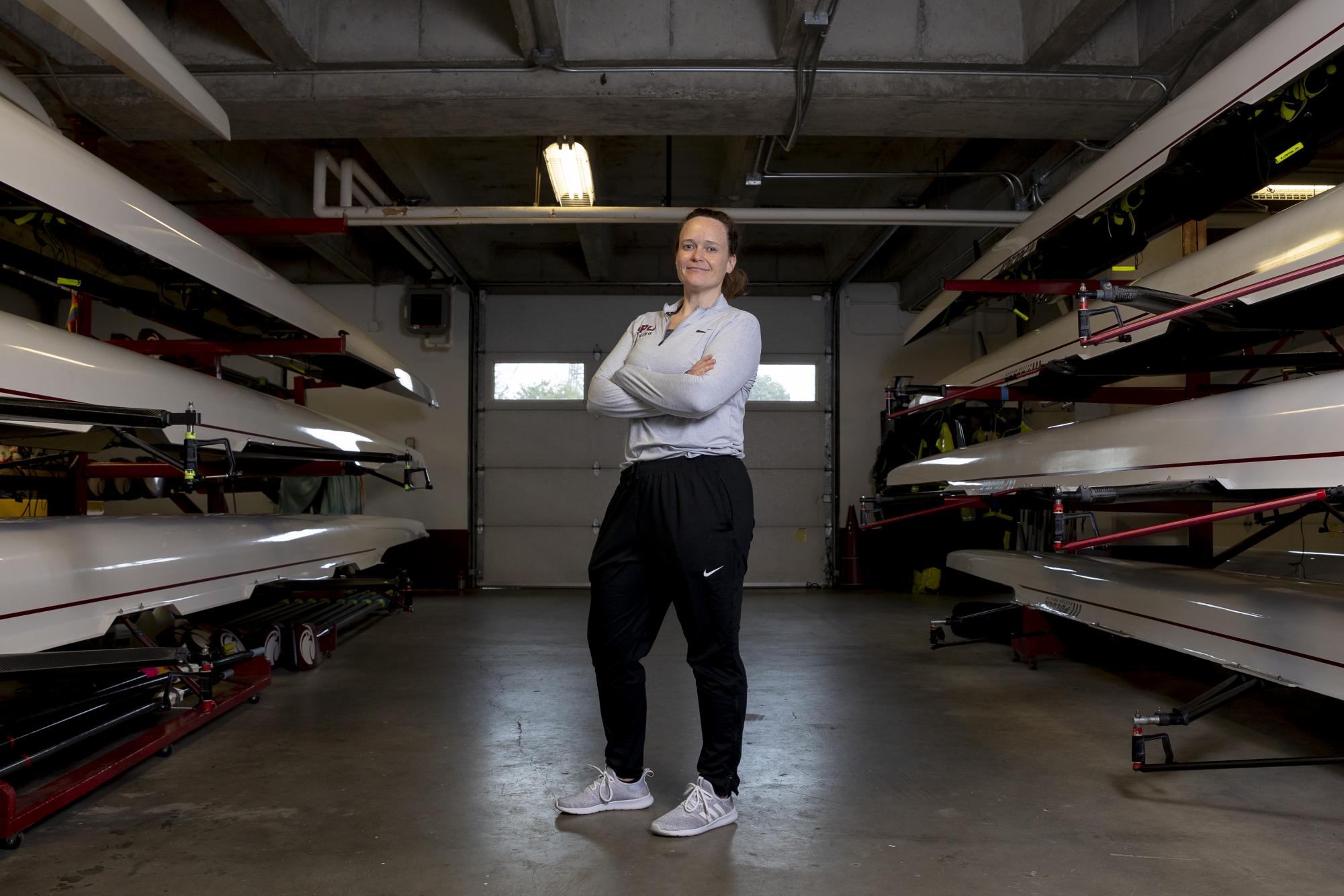
Whether as mentors or facilitators, coaches contribute to an athlete’s never-ending journey of improvement and learning. Their involvement is a necessity, as coaches themselves are always learning and improving alongside their teams.
Head coach for women’s rowing Caitlin McClain has been with Seattle Pacific University for three years. McClain previously coached rowing for 15 years at Seattle’s Holy Names Academy, where she rowed and attended high school from 1998 to 2002. Following graduation, McClain continued rowing on a scholarship at Loyola Marymount University in Los Angeles.
“I love rowing because it does fill different buckets for different people. It’s incredibly beautiful to be out on the water. It speaks to the scientific mind, to the artistic poetic heart, to the social creature who loves being with people and to the individual person who wants to push themselves to the limit,” McClain said.
Despite her history and love for the sport, McClain never saw coaching as a possible career path in her youth. After graduating college, McClain needed employment and was still uncertain of where her life was leading. While figuring that out, she decided to return to her roots.
“When I got to my senior year of college, I was sort of going through that question that we all ask ourselves at different points in life: what am I going to do with my life?” McClain said. “I think I had lined up to start coaching summer camps elsewhere and then start with Holy Names in the fall. Then, I just, I kept coaching.”
While she was coaching for Holy Names, McClain earned her Master’s degree in student development administration from Seattle University. At this point, McClain had been coaching for six years. Ultimately, McClain decided to leave Holy Names for a new challenge.
McClain’s journey as a coach led to her discovering the importance of being more gracious and having more balance and patience in her life.
“Being at SPU, I’ve done better about having a balance [and] trying to be patient and less hard on myself. That was a huge learning curve for me because a lot of my assessment of my success in my job was based on how the athletes responded to me,” McClain said. “If I wasn’t getting the feedback I felt I needed, I would be hard on myself. I’ve learned there are many aspects and not to give up and to give yourself some grace.”
Following her transition, McClain was apprehensive about the learning curve but was pleased with how similar the structure was to her previous experiences.
“I loved the opportunity as a high school coach to be involved in a young person’s life growth and helping them learn to be dedicated to something and grow [into] a top athlete,” McClain said. “There’s still that element of being able to teach someone the sport, see them turn into a rower. It’s been an interesting personal and professional challenge to adapt and grow from being in a new space.”
The greatest challenge McClain faced was accommodating student athletes’ schedules as opposed to running an after school extracurricular.
“The challenging thing within the NCAA structure is you don’t have all the time in the world. You have to be efficient with your time and get as much out of practice as you can,” McClain said. “I try to be realistic about how much I ask of them. There was a lot of growing up.”
Through all the challenges, McClain was focused more than anything on creating an environment where her rowers could learn and grow as much as she was.
“I believe in trying to create a safe environment for people to experiment, take risks, and fail, so to speak. A lot of the way we set up our workouts is trying to … learn how to do this sport and grow from it,” McClain said. “Also to recognize they are more than just a number, more than just the speed they go on the erg or on the water, that there’s always progress.”
As she learned and adapted to collegiate rowing, McClain saw her methods evolve and aid in her growth as a person outside of the sport.
“I’ve grown being here in terms of my view of myself,” McClain said. “I think coaching is a lot of staring at yourself in the mirror if you’re a coach who wants to do well. I don’t want to say [every] coach does something one way, but for me, I’ve always felt if my athletes aren’t getting something, it’s a reflection on me and I have to figure out another way to teach them.”
McClain loves coaching but also stresses the importance of having time for herself. Outside of coaching, McClain loves traveling and exploring new places. McClain’s love for travel was instilled when she was a competitor and had to travel for regattas.
“I [love] to be able to travel in our off-season. I’ve always enjoyed getting on an airplane and going to a new place and getting to experience that. Rowing actually instilled a love for travel in me and then I’ve continued to do that,” McClain said.
McClain values her time away as much as she enjoys her time with the team. She appreciates being able to balance and replenish herself, and she hopes her rowers can do the same.
“Spending time with family and friends is just a way to recharge for me after a long week. It’s always nice to go back home or be with people who know you well,” McClain said. “That’s something that I hope like the athletes do, whether it’s seeing family or seeing those good friends, [and] take care of themselves and fill their cup.”














































































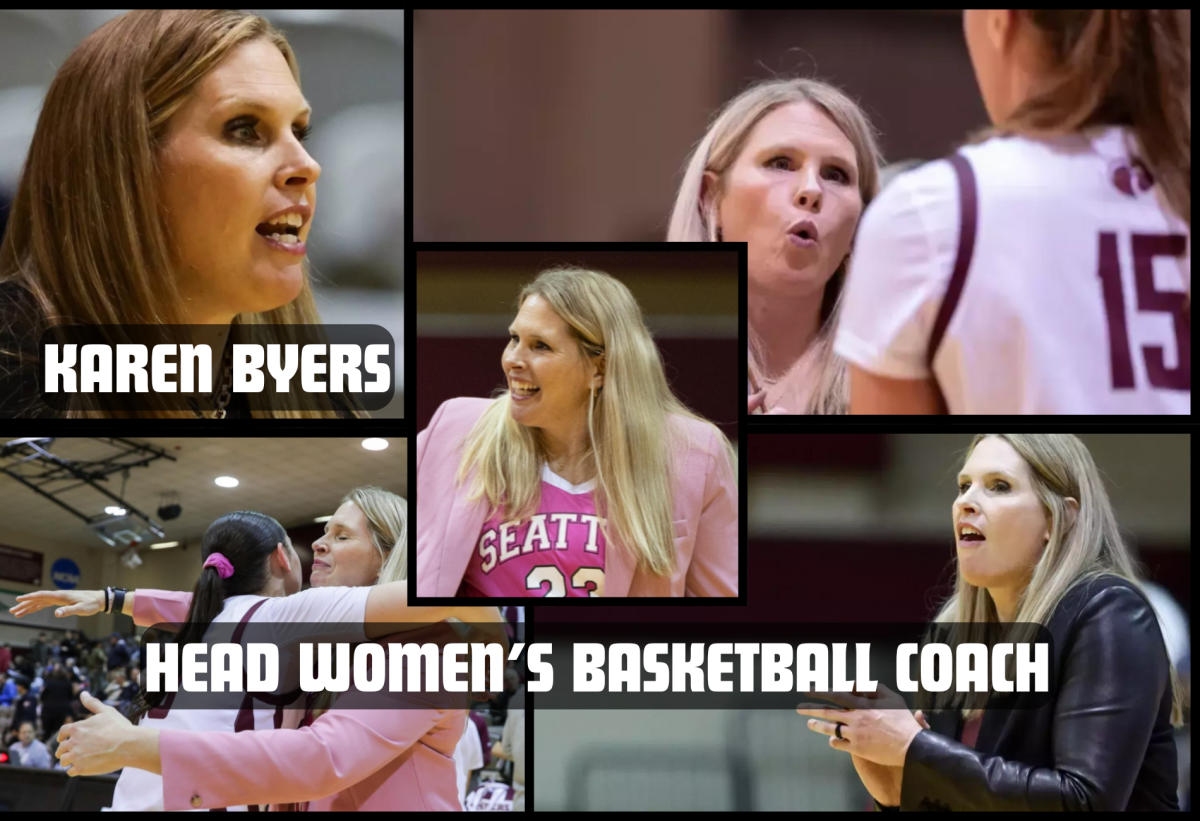
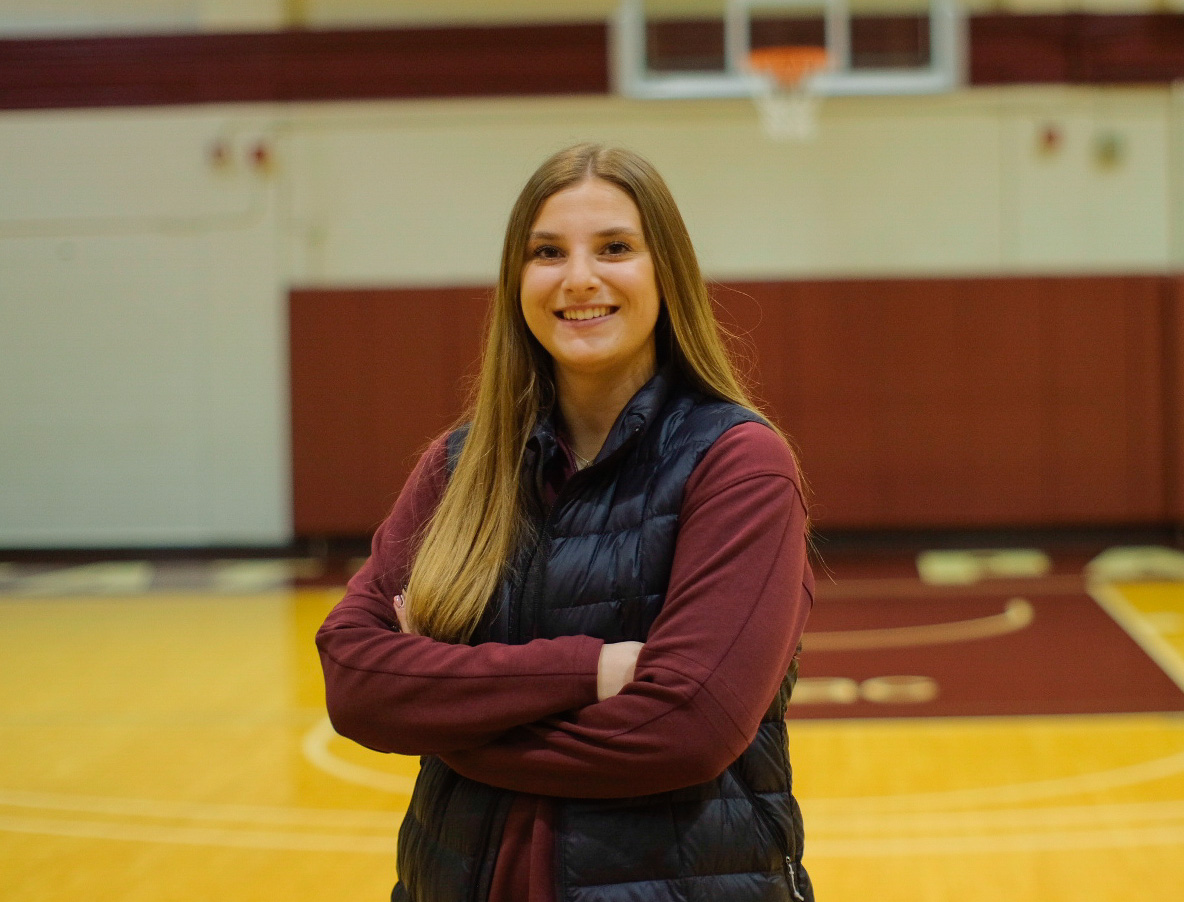
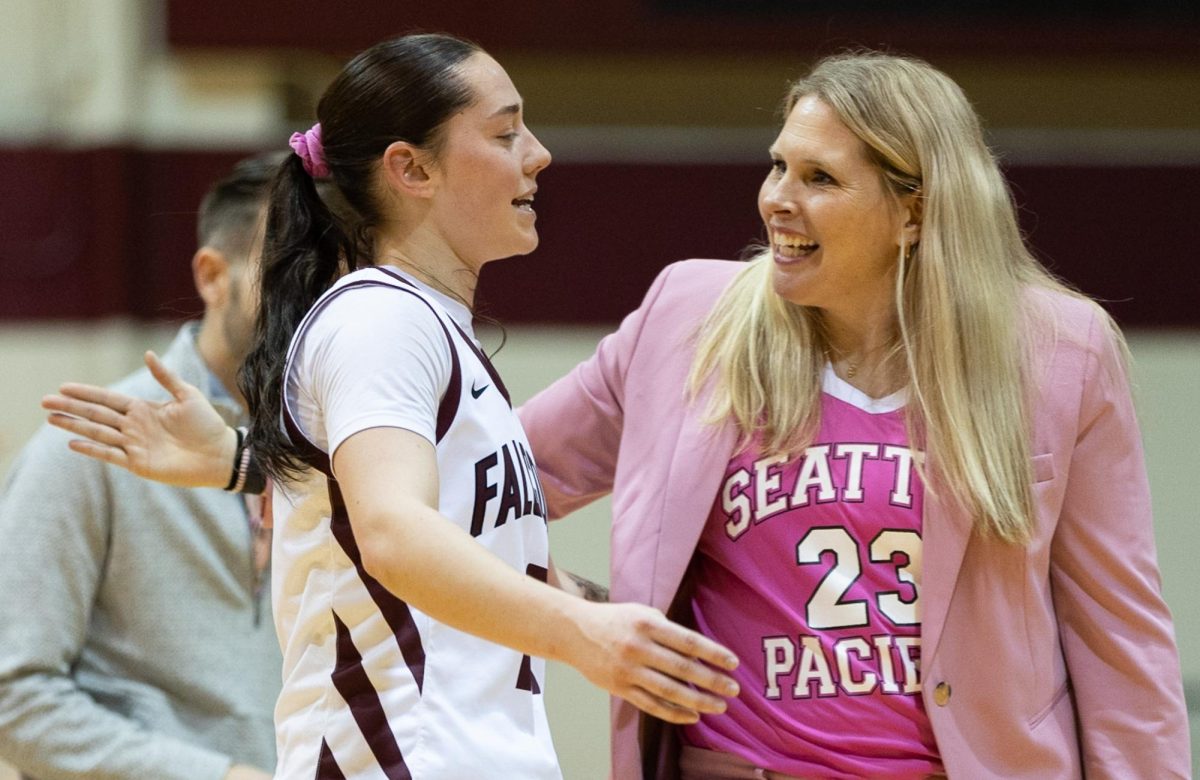
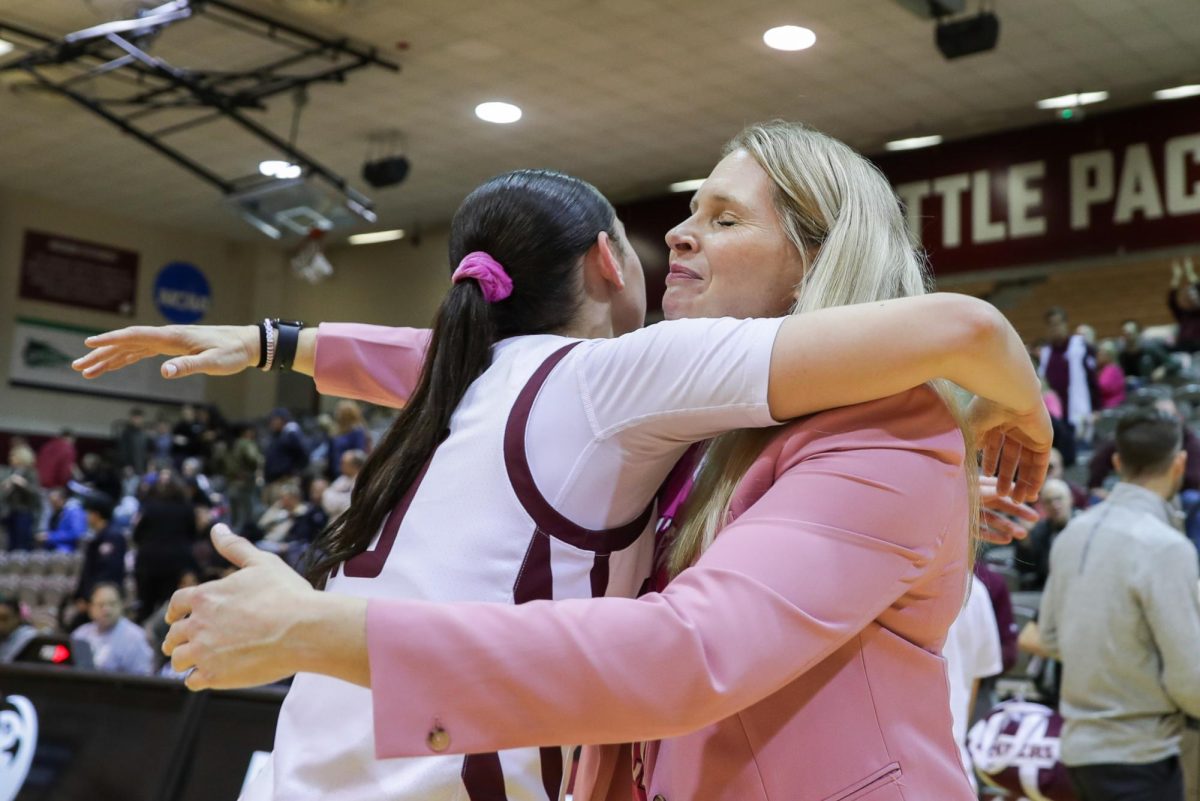
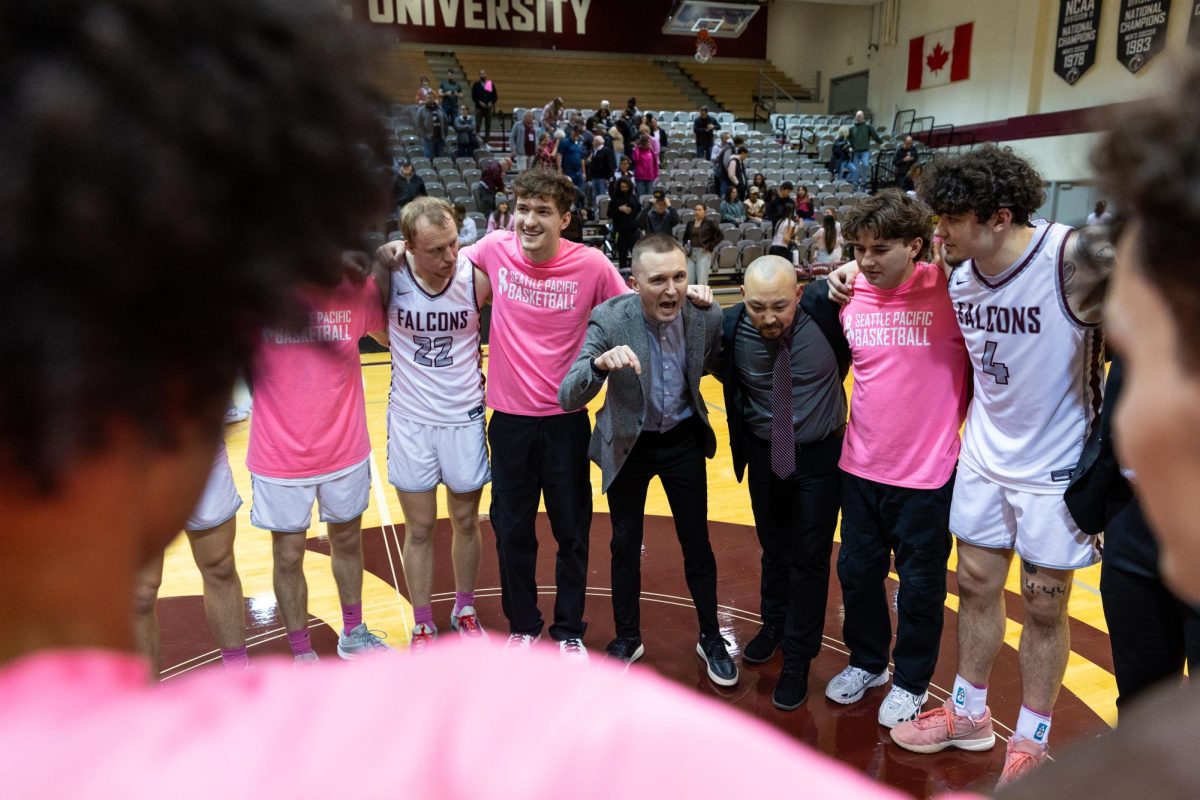
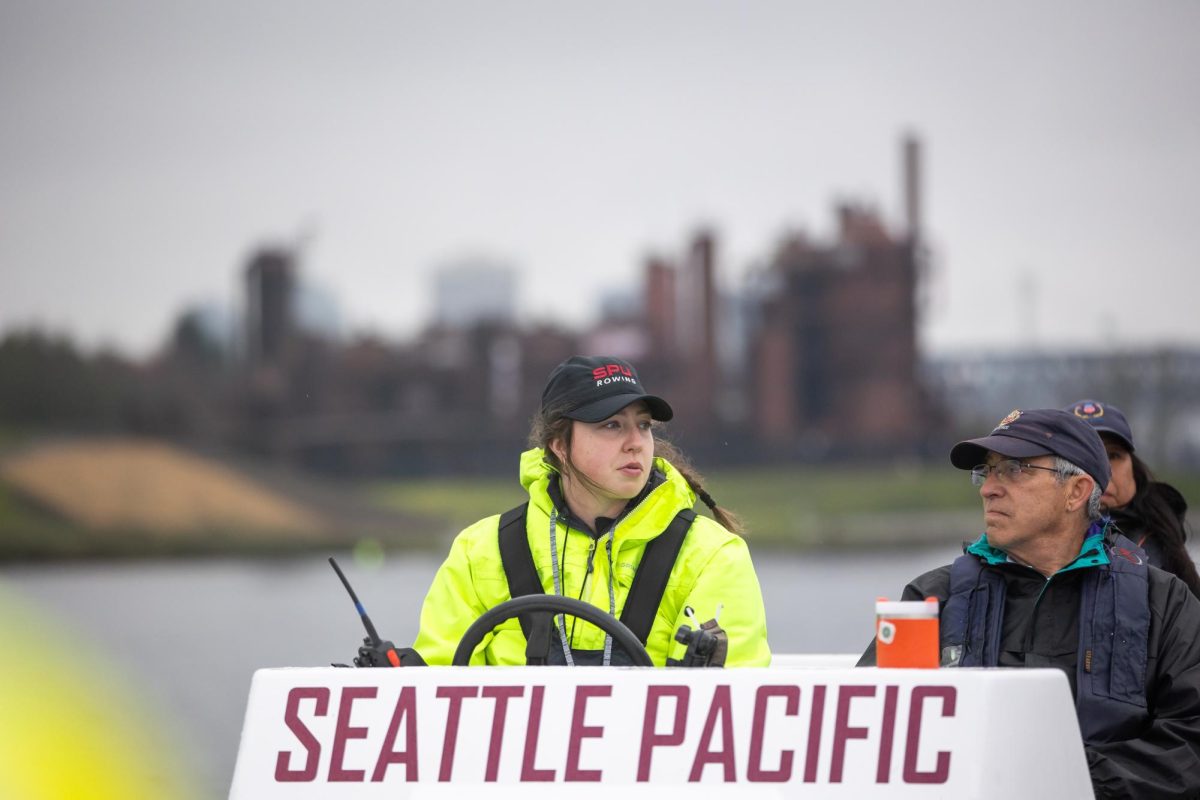







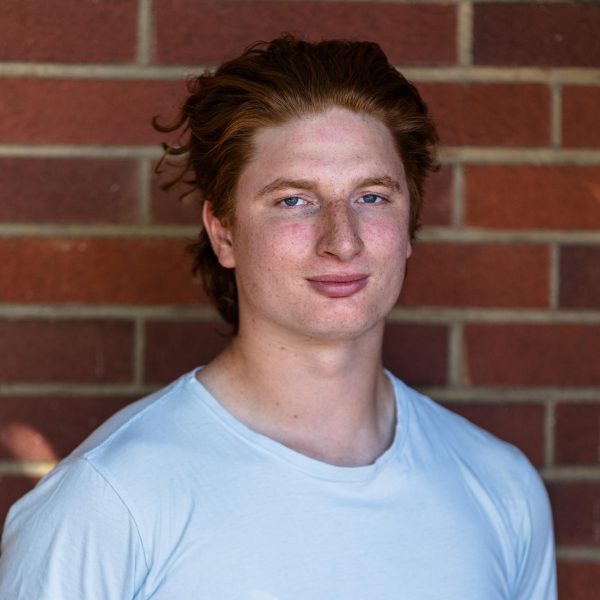
Kirk Rossberg • Feb 21, 2024 at 8:14 pm
Great article. Her story is inspiring.